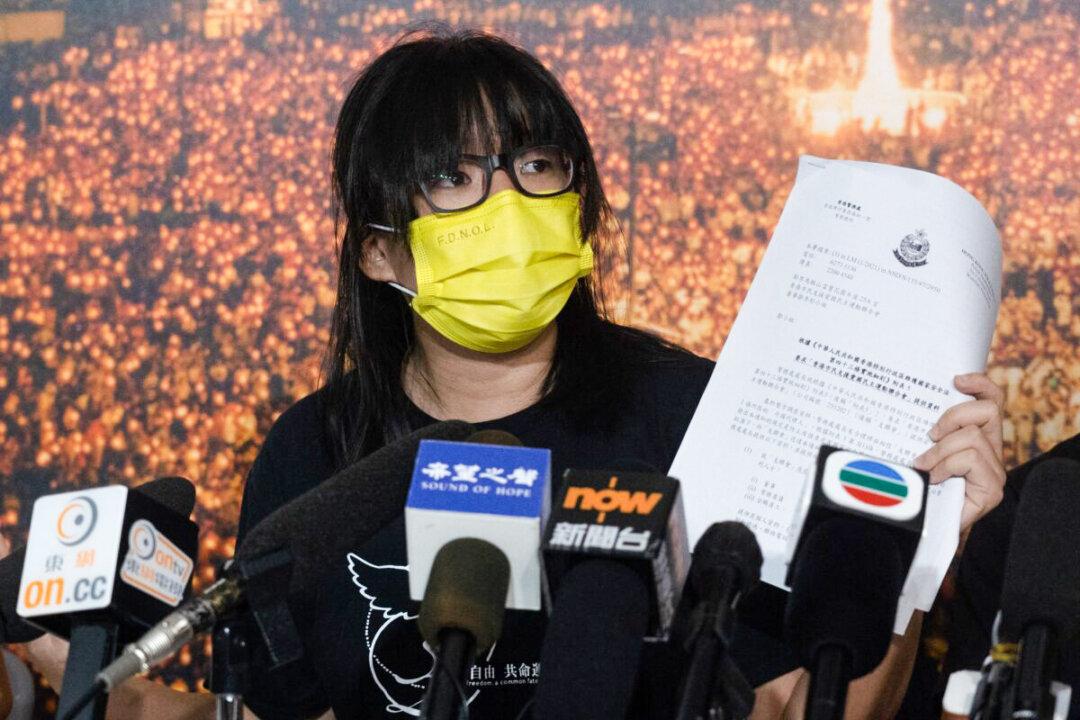Four independent United Nations human rights experts are calling on the Hong Kong government to drop the Beijing-imposed national security law, saying the legislation is fundamentally incompatible with international norms.
“The experts urged the Government to urgently repeal and independently review the National Security Law to ensure it is both human rights and international law compliant,” the four rapporteurs said in a statement on Oct. 12.
Chow was denied bail on Sept. 10, and she pleaded not guilty to the incitement charge early this month.
“Terrorism and sedition charges are being improperly used to stifle the exercise of fundamental rights, which are protected under international law, including freedom of expression and opinion, freedom of peaceful assembly, and the right to participate in public affairs,” the experts stated.
International rights groups have expressed similar concerns about the impact of the national security law in Hong Kong. In June, Amnesty International stated that the law “has created a human rights emergency” in the city. In the same month, Reporters Without Borders declared that the law has put the city’s press freedom “in grave danger.”
The four experts also warned the Hong Kong government not to so easily file subversion and terrorism charges against individuals.
“These labels should not be applied to offences that do not meet the thresholds provided for in existing international standards,” the experts stated.
“The cheapening of the seriousness of terrorist acts and sedition offences, when Governments improperly use them to justify quelling domestic dissent, limiting protests and curbing criticism by civil society and human rights defenders, is deeply troubling.”
Finally, the experts questioned how organizations in Hong Kong could be accused of being “foreign agents” under the national security law for simply receiving funds from foreign political groups.
“Such regulatory measures, by imposing undue restrictions on funding and punishing recipients of foreign funding, infringe on the right to freedom of association as well as other human rights,” the experts stated.
They urged the Hong Kong government to make sure that organizations in the city can “seek, receive, and use funding from foreign or international sources, without undue impediments.”
In response to the rapporteurs’ statement, the Hong Kong Department of Justice defended the national security law in a statement on Oct. 13, saying the law was “in line with the international practice of safeguarding national security.”
The four rapporteurs included Fionnuala Ni Aolain, special rapporteur on the promotion and protection of human rights while countering terrorism, and Irene Khan, special rapporteur on the promotion and protection of the right to freedom of expression.





